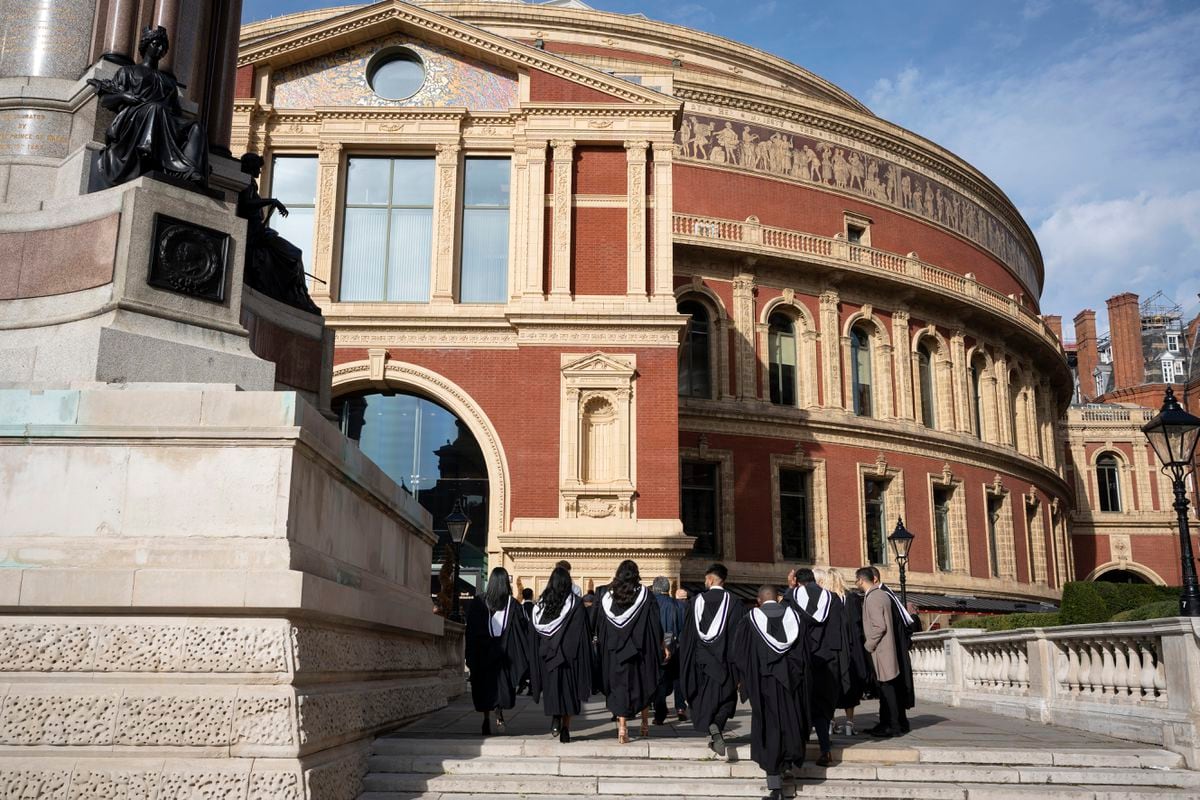UK universities have always been the reason to forgive the clumsy pride of Brexit.
They are the jewel in the crown of a country whose higher education continues to have a level of excellence.
Seventeen of them are part of the hundred best in the world.
And they also constitute a first-class source of income.
It is estimated that they contribute more than 150,000 million euros to the country's economy.
They are currently suffering a crisis that could put their global preponderance at risk.
A British student who wants to enroll in a university degree or postgraduate degree must pay 9,250 pounds sterling per year in tuition (about 10,800 euros).
The amount has been limited by law for a decade, leaving universities to face rampant inflation and competition that forces them to hire professors with attractive salaries and offer a wide variety of degrees and courses.
It is an astronomical figure when compared to tuition fees in Spain, which can vary between 680 and 1,280 euros per year.
Until 1998, access to higher education was absolutely free in the United Kingdom.
It was a Labor Government, that of Tony Blair, that opened the tap, given the growing demand for workers with a university degree.
The system of state loans to students – who are only obliged to repay them when they enter the labor market and from a salary threshold that is generous – continues to guarantee access to higher education for many national students, but it is not enough to finance a sector that has become a competitive and sophisticated business.
Russell Group, the association that represents twenty-four of the most prestigious British higher educational institutions - Cambridge, Imperial College and the London School of Economics, among others - calculates that, in the current situation, each British student represents a near loss for universities. at 3,000 euros per year, which could reach 6,000 at the end of the study period.
The way
Most universities compensate for their financial stress by incorporating foreign students, who account for 20% of income, and can represent up to 32,000 pounds per year (about 37,000 euros) in tuition.
They are mainly Asian students, since the arrival of Brexit eliminated the access of students from the European Union under the same conditions as British students, and kept them considerably away from universities in the United Kingdom.
Students from India, China, Nigeria or Bangladesh have reached 10% of the students in the most popular centers in England, but in recent months alarm signals have emerged.
And the anti-immigration discourse of Rishi Sunak's Government, which faces a difficult election year, has had a lot to do with the decline.
The recent announcement by Downing Street that it was considering eliminating the right of master's students to reunify in the United Kingdom with family members, or the so-called graduate visa routes (temporary work permits for graduates), has discouraged many students aspiring to take the leap.
“The graduate route is an essential part of the UK's offer to potential students.
Many of our competitors offer even more attractive things.
International students make a net contribution to the country's economy of around €46 billion a year, something that benefits the entire United Kingdom," warned Vivienne Stern, the executive director of Universities UK, the association that represents and defends the interests of more than 140 higher education centers.
“No one wants abuses in the system, and we are willing to work with the Government to prevent it.
But it is advisable to rule out the idea of completely eliminating temporary work permits,” the association has claimed.
According to data from the University Admissions Service (UCAS), which the Financial Times has thoroughly examined, nearly a third of British educational institutions have seen the number of admissions applications cut by a third. foreign students not from the EU.
Some centers, such as the University of York, have decided to significantly reduce the academic level required of foreign students to be able to enroll in their degrees.
An analysis carried out by the consulting firm PwC for Universities UK, based on the financial income of nearly 70 British centers in the 2021-22 academic year, estimates that by the end of 2024, 40% of them will have entered a loss situation.
And the solution, the report suggests, can only come in two ways: increasing the number of enrollments of foreign students or increasing the price required of national students.
A few months before an election in which the Conservative Party is risking its future, neither of the two answers is attractive for Sunak.
Follow all the information on
Economy
and
Business
on
and
X
, or in our
weekly newsletter

